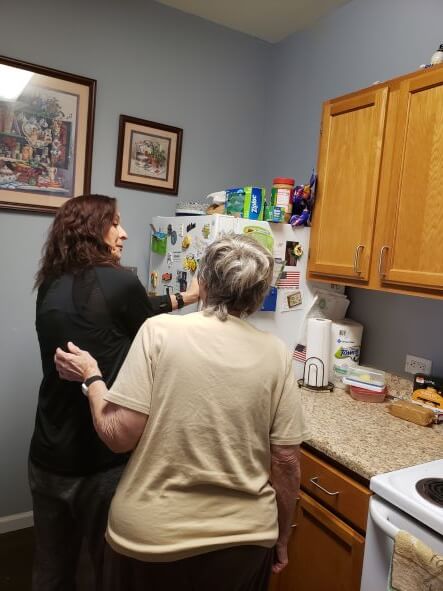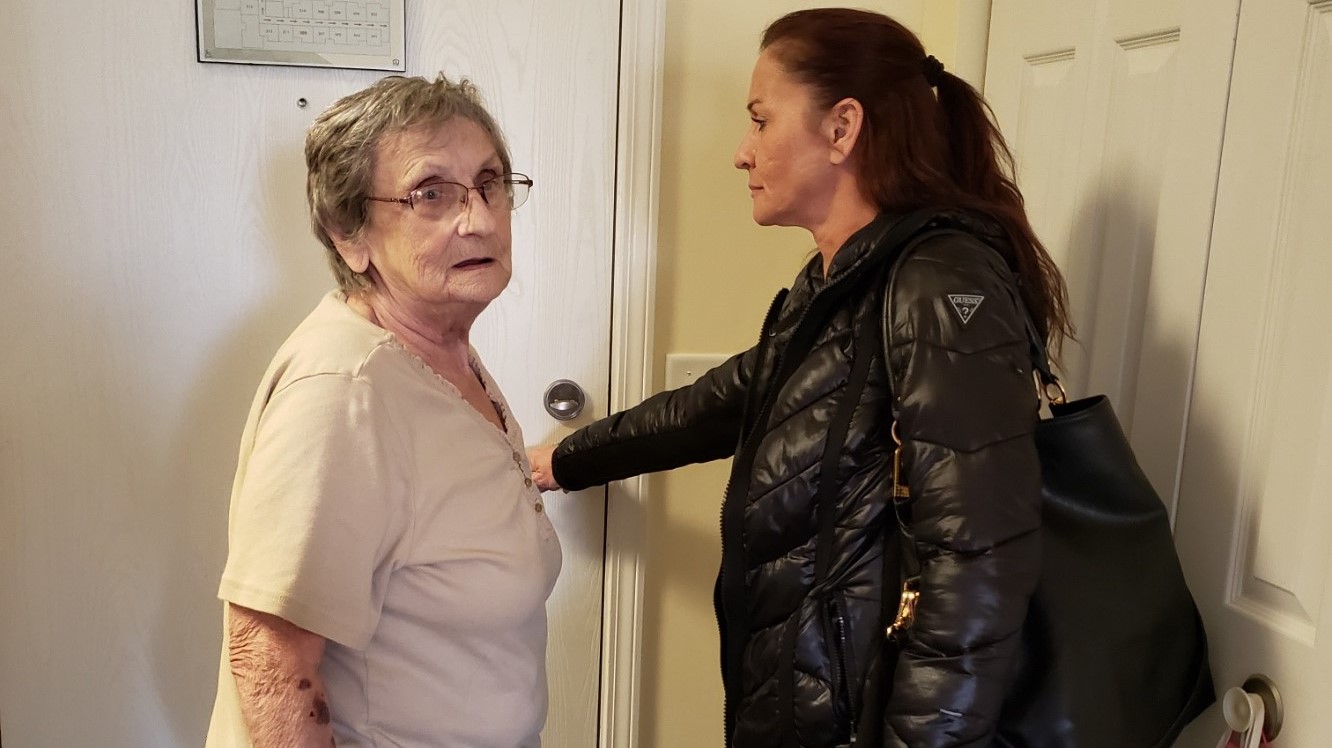What is dementia shadowing and Why is my loved one following me everywhere?
Imagine waking up in a world that feels strange and unfamiliar. You’re not sure where you are, who’s around you, or what to do next. It’s terrifying. But then, you spot someone you recognize—not their name, but their presence brings a sense of safety. You trust this person completely, and staying close to them seems like the only way to navigate this confusing world. This is often what it feels like for someone with dementia.
This behavior, where a loved one follows you everywhere, is called Dementia Shadowing. It can be exhausting, but it’s important to understand that it comes from a place of fear and anxiety—not a desire to be difficult or demanding.

When Does Dementia Shadowing Start?
Dementia shadowing tends to show up during the middle stages of the disease. You might notice your loved one following you from room to room, even into the bathroom or shower. It can feel overwhelming when you realize they won’t even leave the house unless you’re by their side, not even with close family members or friends.
At first, many caregivers don’t understand what’s happening. It’s easy to get frustrated and think, Why are they doing this? Are they trying to drive me crazy? But the truth is, your loved one is terrified. You are their anchor in a world that no longer makes sense to them. They need you to feel safe.
Once you see their behavior through the lens of fear, your response changes. Instead of getting annoyed, you realize they aren’t trying to control you—they’re simply scared and need you more than ever.

What Triggers Dementia Shadowing?
Several factors can intensify dementia shadowing:
- New caregivers or helpers: When new people enter the caregiving circle, your loved one may become even more anxious and clingy. It’s normal to see a temporary increase in shadowing and other behaviors as they adjust to this change.
- Disruptions in routine: Changes, even small ones, can cause confusion and anxiety. Try to keep a consistent routine as much as possible. Any shifts—like a new wake-up time or different meals—can make them feel unsettled.

What Helps Reduce Dementia Shadowing?
While it’s hard to eliminate shadowing entirely, there are several ways you can ease it and create a calmer environment for both you and your loved one:
Stick to a Routine
Routines are comforting because they bring predictability. If your loved one knows what to expect each day, it helps reduce anxiety. Start creating a daily routine early and try to stick to it, even when things get tough.
Provide Reassurance
A big part of managing shadowing is reminding your loved one they are safe. They may need to hear you say, “You’re safe. I’m here. I love you,” many times a day. Even when you’re in another room, speaking or singing aloud can help remind them you’re nearby.
Engage with Meaningful Activities
Distracting them with simple tasks can help them focus on something other than where you are. Try activities like folding towels, sorting buttons, or working on a puzzle. These small tasks can give them a sense of purpose and keep their hands busy.

Use Music
Music is powerful, especially for those with dementia. Put together a playlist of their favorite songs or soothing tunes. A good pair of over-the-ear headphones can help block out distractions and make the music even more effective. It’s amazing how music can calm and refocus someone who is feeling anxious.
Offer Snacks
Simple snacks like Chex Mix, Cheerios, or M&Ms can keep their hands and mind occupied. If your loved one has trouble swallowing, make sure the snack is something they can easily manage without choking.
Create Family Videos
Home videos can serve as a comforting reminder of familiar faces. You can create a private YouTube playlist with family videos that your loved one can watch. This can help them feel connected to others, even when they’re in a shadowing phase.
The Importance of Caregiver Self-Care
When you’re constantly being followed and rarely have a moment alone, it’s easy to forget about taking care of yourself. But it’s crucial to find time for yourself, or caregiver burnout can quickly take over. Reach out to family, friends, or respite care services so you can take a break when needed.
Every Person is Different
Remember, not all strategies will work for everyone. You’ll need to try different things to see what helps in your situation. Be patient with yourself as you navigate these challenges.
Conclusion: Compassion and Understanding
Dementia shadowing can be one of the most challenging behaviors for caregivers to manage. It can feel smothering, overwhelming, and frustrating. But when you remember that shadowing stems from fear and confusion, it helps you respond with more patience and compassion.
Try to see it from their perspective—they’re not trying to make things harder for you. They’re just scared, and you are their safe place in a world that no longer makes sense to them. By using strategies like maintaining a routine, offering reassurance, and finding meaningful distractions, you can make this stage more manageable for both you and your loved one.









0 Comments